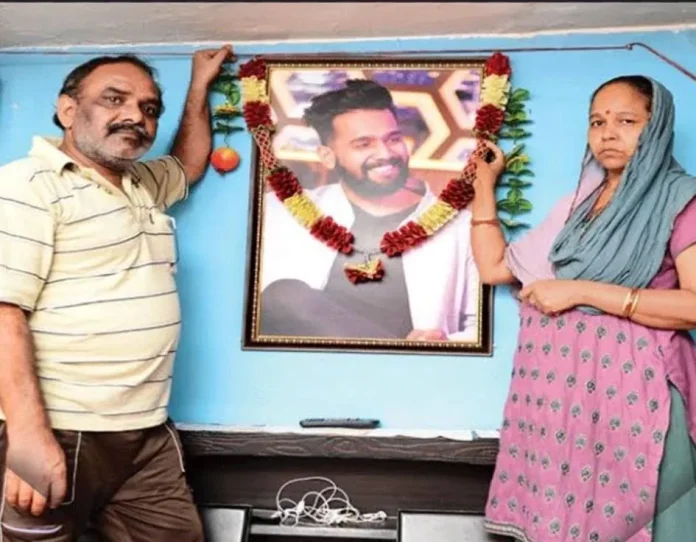Interfaith Love: Photographer’s Murder, Delhi Court Verdict After 6 Years
The long-awaited verdict in the sensational case of Ankit Saxena’s murder has finally been delivered after six years. Ankit Saxena, a 23-year-old photographer, was brutally killed in Delhi on 1 February 2018. The court recently convicted three people for the murder, stating that the prosecution had proven its case beyond a reasonable doubt against Md Salim, Akbar Ali, and Shehnaj Begum, who were opposed to the interfaith relationship.
The Tragic Case of Ankit Saxena’s Murder
Ankit Saxena, a talented young photographer, had a promising future ahead of him until his life was tragically cut short in February 2018. He was stabbed and had his throat slit by the family of his girlfriend near his house in Raghubir Nagar. This case not only highlights the personal tragedy for Saxena’s family but also exposes the deep-rooted prejudices and intolerance prevalent in society.
This incident sheds light on the broader issue of interfaith relationships and the challenges they face in our society.
Speaking with True to Life on 8 January 2023, Sub-inspector Ashok Kumar of Khyala Police station mentioned, “The case faced delays due to misconceptions, allegations, and a lack of witnesses,” revealing the multiple challenges the case encountered.
He continued, “According to witnesses, when the victim was being attacked by her family and friends, he denied being in a relationship with Shehzadi.”
In the 121-page judgment dated December 23, 2023, the court noted that Saxena was in a relationship with Shehzadi, the daughter of Ali and Begum. The accused, “in furtherance of their common intention,” slit Saxena’s throat.
Ankit Saxena’s story underscores the struggles faced by individuals in interfaith relationships. The officer stated to True to Life, “Saxena’s relationship with a woman from a different community became the catalyst for a brutal attack by a group of individuals.”
A Landmark Verdict
In a significant legal development, a Delhi court recently delivered a verdict after nearly six years of judicial scrutiny into the tragic murder of Ankit Saxena. The incident, emblematic of societal resistance to interfaith relationships, unfolded in Raghubir Nagar.
Presided over by additional sessions judge SK Sharma, the court affirmed the prosecution’s evidence against the accused trio: Md Salim, Akbar Ali, and Shehnaj Begum. Convictions were secured through scientific evidence, eyewitness testimonies, and corroborating statements from other witnesses, revealing the deeply entrenched intolerance behind the 2018 murder.
The court observed that the defence of the accused appeared coached, prompting contemplation on the role societal norms and prejudices played in influencing their actions.
Scheduled for sentencing arguments on January 15, the case was diligently prosecuted by Special Public Prosecutors Vishal Gosain and Rebecca Mammen John, representing the Delhi Police.
“The accused A-1 Mohd. Salim, accused A-2 Akbar Ali, and accused A-3 Shahnaj Begum stand convicted for the charge of the offence punishable under Section 302 (murder) and 34 (acts done by several persons in furtherance of common intention) IPC,” the court declared.
The court additionally convicted Begum under section 323 (voluntarily causing hurt) of IPC for assaulting Saxena’s mother, Kamlesh Saxena, while she was trying to protect her son.
Beyond the legal proceeding, the verdict serves as a poignant reminder of the challenges faced by individuals in interfaith relationships. It urges society to reflect collectively on the imperatives of tolerance, acceptance, and providing legal safeguards for couples navigating differing religious backgrounds.
The prosecution relied upon 28 witnesses, including Saxena’s father, Yashpal Saxena, mother, and his friends, Nitin and Anmol.
“These witnesses have consistently elucidated what the accused persons did to the deceased and how they committed the alleged offence. Their testimony before the Court is contemporaneous to the alleged offence and consistent on all material aspects that constitute the offence,” the court stated in its 121-page order.
Additionally, the court noted the accused defense as tutored, finding contradictory statements made by the accused under section 313 of the Code of Criminal Procedure. The court also rejected the defense’s arguments regarding discrepancies in the statements of the prosecution witnesses.
As the case moves towards its sentencing phase, the Ankit Saxena matter stands as an emblematic symbol of justice prevailing against intolerance.
The court has now listed the matter for hearing the arguments on sentence on January 15.
Article by Sanjana Shelar from Mumbai for True to Life.
